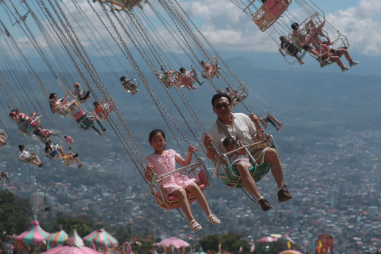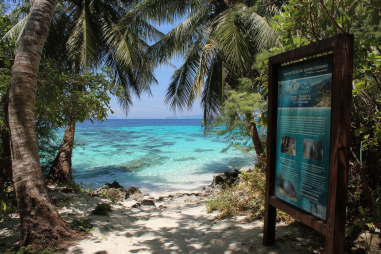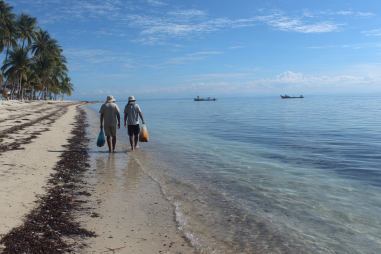Traveling to the Philippines offers a vibrant blend of tropical beaches, rich culture, and warm hospitality. However, like any international destination, ensuring you’re well-prepared health-wise is crucial for a safe and enjoyable trip. This guide covers everything you need to know about health considerations, recommended vaccinations, common illnesses, and safety tips to help you stay healthy while exploring the beautiful islands of the Philippines.
Overview of Health Considerations in the Philippines
The Philippines is a tropical country with a tropical climate that can present certain health challenges for travelers. While many visitors experience no health issues, it is important to acknowledge potential risks like mosquito-borne diseases, waterborne illnesses, and tropical infections. Urban areas generally have better access to modern medical facilities, but remote and rural regions might have limited healthcare resources. Being prepared with the right vaccinations, medications, and knowledge about health and hygiene can make a big difference during your trip.
Recommended Vaccinations and Immunizations
Before traveling to the Philippines, it is advisable to consult with your healthcare provider or a travel health clinic to determine which vaccinations you need based on your itinerary and personal health. Commonly recommended vaccines for travelers to the Philippines include:
- Routine vaccines: Ensure you are up to date on routine immunizations such as measles-mumps-rubella (MMR), diphtheria-tetanus-pertussis, varicella (chickenpox), polio, and your yearly flu shot.
- Hepatitis A: The hepatitis A vaccine is recommended for all travelers since the virus is transmitted through contaminated food and water.
- Typhoid: Recommended especially if you plan to visit rural areas or eat food from street vendors where sanitation may be questionable.
- Hepatitis B: Considered for travelers who may have close contact with local residents, healthcare workers, or those engaging in activities with potential exposure to blood or bodily fluids.
- Rabies: If you’re planning to spend significant time outdoors or in contact with animals, a rabies vaccine series may be advised since dog bites and other animal encounters can occur.
- Japanese Encephalitis: For travelers staying longer than one month, or visiting rural or agricultural areas during the transmission season, this vaccine might be necessary.
- Yellow Fever: Not present in the Philippines; however, proof of vaccination is required if arriving from a country with risk of yellow fever.
Be sure to receive necessary vaccines at least 4-6 weeks before departure to ensure optimal immunity.
Common Diseases and How to Avoid Them
The Philippines has some health risks primarily due to its tropical environment and water sanitation challenges. Here are some common illnesses travelers may encounter and tips on how to avoid them:
- Dengue Fever: Spread by Aedes mosquitoes, dengue fever is prevalent year-round. Use mosquito repellent containing DEET, wear long sleeves and pants, and sleep under mosquito nets or in air-conditioned rooms to minimize bites.
- Malaria: Malaria risk is low in most urban areas but present in some rural parts, especially in Palawan and Mindanao. Depending on your travel plans, anti-malarial medication may be advised by your doctor.
- Chikungunya and Zika Virus: Also transmitted by mosquitoes, the same preventive measures used for dengue apply. Pregnant women should be particularly careful due to possible Zika virus complications.
- Traveler’s Diarrhea: Often caused by consuming contaminated food or water. Avoid tap water, ice cubes, raw or undercooked meats, and unpeeled fruits. Maintain good hand hygiene and carry oral rehydration salts for mild dehydration.
- Typhoid Fever: Can result from ingestion of contaminated food or water. Vaccination and careful food choices help reduce this risk.
Food and Water Safety Tips
One of the most important aspects of staying healthy when traveling in the Philippines is being cautious about what you eat and drink. Follow these food and water safety tips:
- Drink only bottled, boiled, or properly filtered water. Avoid ice cubes unless you are certain they were made from safe water sources.
- Eat freshly cooked foods that are served hot. Avoid raw or undercooked seafood, meats, or street foods where hygiene is uncertain.
- Wash your hands frequently with soap and water, especially before eating.
- Use hand sanitizer when soap and water aren’t available.
- Peel fruits yourself if eating raw, or buy fruits that can be peeled like bananas or oranges.
Health Insurance and Medical Facilities
Having adequate health insurance coverage that includes medical evacuation is essential when traveling abroad. Medical facilities in major cities such as Manila, Cebu, and Davao are generally well-equipped with English-speaking staff. Private hospitals offer higher standards of care but can be costly. In rural and remote areas, medical resources may be limited, so plan your travel accordingly.
Before departure, check if your travel insurance plan covers medical treatment in the Philippines, including emergency transport. Carry a copy of your insurance card and know how to contact your insurer in case of emergency. It’s also wise to know the locations of nearby hospitals or clinics at your destination.
Traveling with Medications
If you have prescription medications, bring enough for your entire trip along with a copy of your prescription. Keep medications in their original labeled containers and carry them in your hand luggage. Some medications considered routine elsewhere might require special permits or documentation in the Philippines. It’s helpful to carry a letter from your doctor explaining your medical condition and medications.
If you need to bring injectable medications or medical devices (like syringes), check customs regulations and bring documentation to avoid complications at the border.
What to Do If You Get Sick Abroad
If you experience mild symptoms like diarrhea, nausea, or fever, start with self-care measures such as hydration, rest, and over-the-counter medicines (where appropriate). Avoid self-medicating with antibiotics unless prescribed by a healthcare professional.
If symptoms worsen or you have persistent fever, severe abdominal pain, difficulty breathing, or signs of dehydration, seek medical attention promptly. Use your hotel concierge or local contacts to find reputable clinics or hospitals. Calling your travel insurance emergency number can provide guidance and assistance in arranging care.
Keep a travel health kit handy with basics like bandages, antiseptics, pain relievers, antidiarrheals, and oral rehydration salts.
COVID-19 Related Travel Advice
The COVID-19 pandemic continues to affect international travel protocols. Before your trip to the Philippines, check the latest government travel advisories regarding entry requirements, testing, and quarantine rules. Many airlines and accommodations also have specific health protocols.
To protect yourself and others:
- Get fully vaccinated against COVID-19 and stay up to date with booster shots as recommended.
- Follow airport and airline guidelines, including mask-wearing, hand hygiene, and social distancing where possible.
- Monitor your health for symptoms before and during travel and have a plan in place in case you test positive abroad.
Although many restrictions are easing, staying informed and prepared will help ensure your trip goes smoothly.
Traveling to the Philippines can be a wonderful adventure filled with unforgettable experiences. By taking proactive steps to protect your health with vaccinations, safe food and water practices, proper insurance, and awareness of local health risks, you can enjoy your vacation with confidence and peace of mind. Happy travels!







